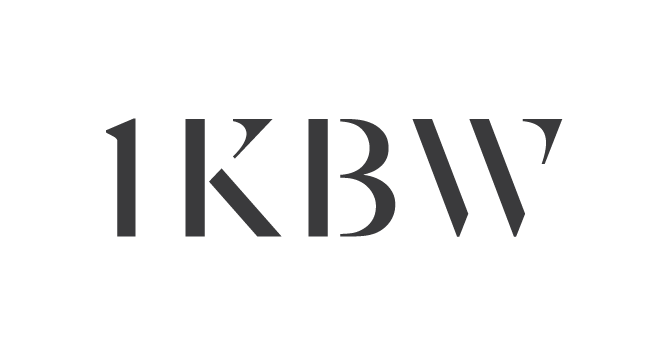Knowledge Hub
Join the Conversation!
Impartial and independent, ThoughtLeaders4 HNW Divorce Knowledge Hub hosts cutting edge industry content and insight.
Email maddi@thoughtleaders4.com to submit content.
Cryptocurrency fraud claims against “persons unknown” – a tale of two cases
Date: 12/09/2024 Type: Articles Topic: FIRE | Insolvency | Civil Fraud | International | Enforcement | Offshore | Asset Recovery | Disputes | Shareholder Diputes | Digital Dispute Resolution | Libor | In-House | Crypto | International Arbitration | Litigation Funding | Future of Dispute Resolution | Witness Familiarisation | ESG |Two recent and significant cryptocurrency fraud cases in the UK illustrate the impact of individual judgements on the relatively small body of cryptocurrency case law. Both cases feature cryptocurrency claims against "persons unknown" – an increasingly common challenge particular to cryptocurrency fraud cases. Despite similar fact patterns, the sitting Judges arrived at two contrasting summary judgements. These cases are worth studying as an example of the nuances practitioners need to grasp when keeping up with evolving legal precedents in the cryptocurrency arena.
Boonyaem v Persons Unknown [2023][1]
In the 2023 case of Boonyaem v Persons Unknown, Thai estate agent Tippawan Boonyaem was the victim of an elaborate cryptocurrency scam commonly known as “pig butchering”. She was persuaded by a fraudster on Facebook, then more latterly on a phone messaging service, to convert Thai bhat to the Tether stablecoin (USDT). She was encouraged to transfer the USDT to various wallet addresses and was told that by doing so, she was depositing her USDT into an online trading platform to be invested by the defendants on her behalf.
Following a common pattern in such scams, she was encouraged to invest more money over time, then asked to pay additional fees and taxes to withdraw her funds. Soon after, the fraudster disappeared. She was eventually defrauded of over USD 425,000 in Tether.
Boonyaem initiated legal action against three groups of defendants:
- “Persons Unknown Category A” - the unknown fraudsters connected to the fraudster or online trading platform,
- “Persons Unknown Category B” - the unknown but identifiable individuals who operated the custodial cryptocurrency wallets where her funds were held, and
- the UK-registered company which owned the online trading platform used in the scam.
When funds are traced to a custodial wallet held by a suspect, as in the case of funds held by Persons Unknown Category B, the cryptocurrency exchange or Virtual Asset Service Provider (VASP) hold the private keys and are the ultimate authority on executing transactions and wallet administration. Whether a wallet is custodial or non‑custodial can be identified through OSINT methods or the use of proprietary blockchain analytics tools to identify the crypto service the wallet is associated with. This is not only an important consideration in the recovery process, it also informs further tracing efforts. Tracing cannot proceed through a VASP without the VASP’s disclosure of the onward fund flows. Varying levels of this information will generally be retrievable through legal process to compliant exchanges. It is through this legal process that KYC information held by the exchange can reveal the individual behind the custodial wallet.
Regarding the identity of the category B defendants, the Judge was initially of the view that before seeking judgment, the claimant should have utilised the court processes to obtain disclosure of those names. However, he ultimately decided that the additional costs and delays involved in disclosure proceedings would not align with the overriding objective of dealing with proceedings justly and at proportionate cost, given the comparatively small claim at stake.
The Judge decided that it was possible for the category B defendants to be sued and to have an enforceable judgment given against them as “Persons Unknown”, on the grounds that technology made it possible to bring the proceedings effectively to the defendants’ attention. He drew a distinction between the unknown and unidentifiable defendants in category A, and the unknown, but possibly identifiable, defendants in category B. The Judge granted a judgment against the potentially identifiable individuals in category B and the identified third defendant, provided it was possible to bring the proceedings to the defendants’ attention.
The court faced challenges in proceeding against the category A defendants on the basis that Boonyaem did not "describe any identifiable person against whom judgment can properly be given". Further noting that a previous disclosure order had produced no useful results in identifying the fraudsters. The Judge supported his decision with the justification that any final judgement against an unidentifiable defendant would leave any injunction unenforceable.
Mooij v Persons Unknown [2024][2]
In the more recent case of Mooij vs Persons Unknown, Mr. Mooij was persuaded to transfer cryptocurrency held in a Kraken account to a trading platform called MegaMarkets, together with €330,000 to a Spanish bank for a further cryptocurrency investment. Upon realizing he was a victim of fraud, Mr. Mooij issued claims against 11 defendants, including involved cryptocurrency exchanges to encourage them to provide relevant information in support of his claim.
The case history of Mooij vs Persons Unknown shared many similarities with the Boonyaem case, particularly in that both claimants had attempted to effect alternative service through NFT. Mooij had also categorized the defendants based on their anonymity, like the characterization in Boonyaem.
However, in spite of these similarities, the judge in Mooij disagreed with the position taken in Boonyaem, and concluded that judgments can be obtained against unidentifiable defendants. The Judge explained that neither enforcement nor the criteria for granting a freezing injunction were “further qualified by a requirement or even an assumption that [a defendant’s] true identity must be established by the time the court grants judgment”.
Lessons learnt
Expert observers have since characterised the Boonyaem decision as a bump in the road. The decision in Mooij was heralded as a return to the previously accepted position that judgments can be sought and obtained against unknown, unidentifiable third parties. The judge in Mooij concluded that it is possible to effect service on a fraudster in a cryptocurrency case via alternative methods of service, illustrating that a key consideration for any claimant should be how they plan to effect service on Persons Unknown.
The most promising aspect of these cases is that they both highlight the potential for legal remedies in cryptocurrency fraud cases. However, it also shows the inherent difficulties in enforcing judgments when faced with untraceable or anonymous actors in the digital space. Although a judgement was granted in Mooij, it is clear that a court cannot always be relied upon to provide final judgment against unidentifiable defendants.
The legal landscape and case law for cryptocurrencies continues to develop, with courts and regulators continuously adapting existing laws to address the unique challenges posed by digital assets. It is encouraging to see the English Courts willing to adopt innovative ways of facilitating claims in a space where fraudsters all too easily hide behind anonymity and costly legal processes.
[2] Mooij v Persons Unknown [2024] WHC 814 (Comm)
Author
Michael Milton (Associate Director) - Forensic Risk Alliance
Our HNW Divorce Corporate Partners















